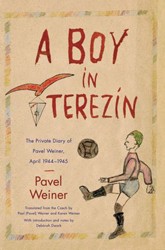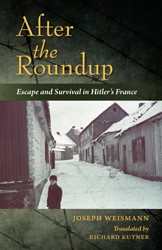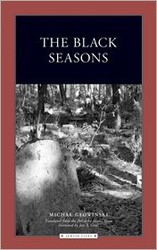“Anti-semitism,” Jean-Paul Sartre wrote, “is not an opinion. It is a crime.” Such a resolute view, quoted by Beate and Serge Klarsfeld, has spurred their fearless pursuit of Nazi war criminals for more than fifty years. Recently translated from the French by Sam Taylor, Hunting the Truth presents a riveting record of their dedicated research and action since the 1960s. Now grandparents at 79 and 82, Beate and Serge have continually sacrificed their own comfort and security to make sure that “former Nazis realize that they [are] not safe anymore.” The Klarsfelds admit to reservations about completing this extensive autobiographical project. Indeed, in 2012 they asked their editor to be released from the contract; they felt reluctant to revisit their past without possessing greater “talent for storytelling.” However, with the memoir accomplished, they have no regrets. Presented as alternating first person accounts, the resulting volume could benefit from further shaping and editing. However, it will surely allow their descendants and readers to know “if not who [the Klarsfelds] were, at least what [they] did.”
In fact, we do learn about the personal background of the Klarsfelds. Beate, raised in Berlin as an Evangelical Lutheran, had lost her faith in God by the time she emigrated to France in 1960 at the age of 21. Serge, whose father perished in Auschwitz in 1943, did not inherit a Jewish identity through religion or culture. In truth, he is not “a believer,” but his is a Jewish identity defined by the “Holocaust and an unswerving attachment to the Jewish state of Israel.” He says, “I do not want to pass on my Judaism, since I married a non-Jew.” As both look back on early formative influences, they give special mention to the White Rose movement led by the Catholic siblings Hans and Sophie Scholl. Arrested for distributing anti-Nazi leaflets at their university in Munich, they and their associates were given show trials and then executed in 1943. As Beate says, the Scholls “were driven to act, to give their lives,” [and] I saw myself in them.” For his part, Serge sees the Scholls’ public dissent as “doomed to failure, but it proved to be a fertile failure,” which forged “the existence of another Germany.” To emulate the Scholls’ heroic example, Beate adds, one must recognize “before acting that success is not a certainty.” Instead, the essential point is to “try courageously to follow your conscience, with your eyes wide open.”
The Klarsfelds met on the Paris Metro on May 11, 1960, the very day that the Israelis kidnapped Adolph Eichmann in faraway Buenos Aires. The “epitome of the Nazi criminal,” Beate writes, is the one “who fled to the ends of the earth to avoid capture.” However, their eventual focus would mainly be on those Nazi criminals who had remained in Europe, especially those who had slyly reentered German civil society after serving the Nazi cause in France. The Klarsfelds’ relentless pursuit of the “Butcher of Lyon,” Klaus Barbie, in remote Bolivia, was distinctive but atypical. Their usual targets were those former “desk killers”: ex-Nazi bureaucrats in occupied France, who had been living “normal” German lives since the war’s conclusion. Decades of methodical inquiry and pursuit emptied out a veritable barrel of hiding snakes, from Kurt Kiesinger to Herbert Hagen and Josef Schwammberger. In later years, they helped to unmask the Nazi past of former UN Secretary General and Austrian presidential candidate Kurt Waldheim. The couple’s way of “acting scandalously to make people see the real scandal” was vividly displayed in Beate’s public shaming of super-assimilated ex-Nazi and German Chancellor Kurt Kiesinger in 1968. Just minutes after this dramatic “slap,” Serge was “already firing off a press release “ that clearly “contextualized the act.” Added to their bold actions and publicity skills, the memoir reflects the couple’s tireless dedication to detailed investigation and research. Serge, and later their son, Arno, both used their legal training in this phase of the Klarsfelds’ work. Well before the advent of digital media, the Klarsfelds were “poring over the microfiche every night,” and compiling “precise dossiers” to document the crimes of their Nazi targets.
The creation of the FFDJF, the Association of Sons and Daughters of Jews Deported from France, has been the foundation for the Klarsfelds’ life work. For Serge, the 1978 publication of their 656-page book, Memorial to the Jews Deported from France,” is perhaps their most important act. Citing their rigor in documenting the identities of the 80,000 Jews deported from France, one French commentator honored the Klarsfelds as the “knights of benign memory.” This book also helped them secure a lifetime annuity for the orphans of the Jewish-French deportees. Their later work aided in the conviction of the Holocaust denier Robert Faurisson, and the recent defeat of the far-right presidential contender and National Front leader, Jean-Marie Le Pen. In appreciation of their effective support, French President Emmanuel Macron responded with a personal letter of gratitude. Anti-semitic hatred, in Sartre’s formulation, “is first of all a passion.” By presenting their many years of struggle for a “great, just cause,” the Klarsfelds’ memoir affirms a far higher and more enduring passion.




